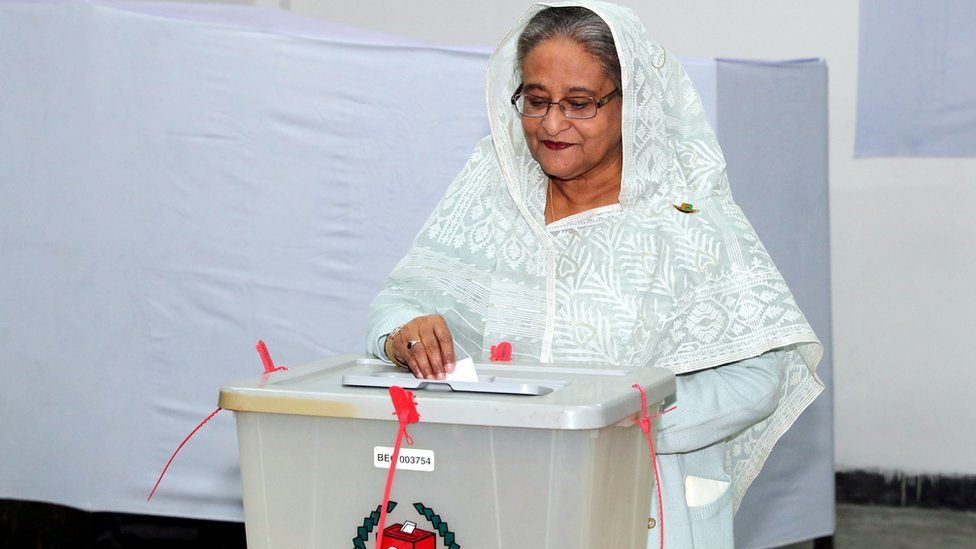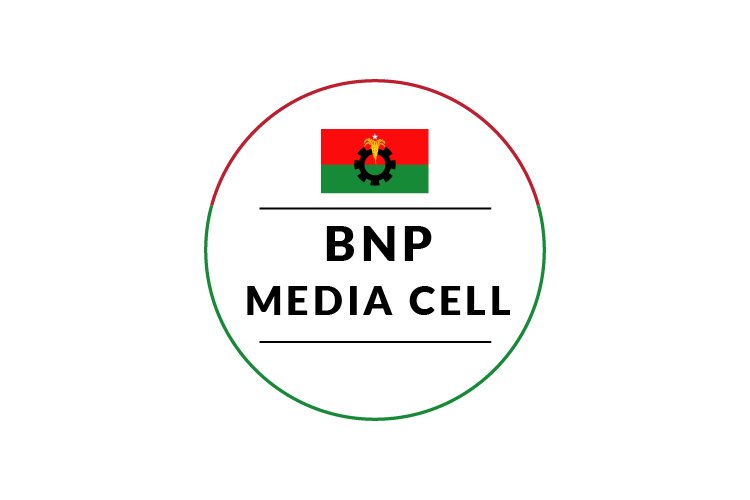On the eve of the third consecutive one-sided election, there is some chatter about whether the democratic opposition —the Bangladesh Nationalist Party and its allies —should have participated. For many, criticising BNP for the ‘dummy election’ is just the continuation of their lifelong habit of blaming the party for whatever ails Bangladesh. Blaming BNP is, of course, the easiest thing to do in Bangladesh. Just as caricatures of Prime Minister Khaleda Zia, Tarique Rahman and other BNP leaders never carried any risk for the cartoonists or editors, ‘it’s all BNP’s fault’ can pass for insightful commentary among some.
These emeritus pundits and Lance Naiks of the Obvious can be safely ignored. However, there are those for whom asking about the opposition’s decisions is a sincere effort at introspection. Would it not have been better to participate in the process, force the regime to rig the election in an even more blatant way, and provide the liberal democracies of the West with a justification to impose punitive measures on the regime —they ask. It is important to engage with these critics. They are allies in the next stage of the struggle for democracy. And the democratic cause will benefit from introspection and analysis.
Of course, to participate or boycott is hardly a new debate in our politics. A century ago, nationalist politicians waging the freedom movement against the Raj confronted the same issue. After protesters burnt down a police station in North India killing 22 policemen, all Indians, in February 2022, MK Gandhi had suspended the non-cooperation movement that had engulfed the subcontinent in the previous year. Over the subsequent months, the nationalist movement split into two factions: the pro-changers, led by CR Das and Motilal Nehru, and including young HS Suhrawardy, Subhas Bose, and Ballavbhai Patel among their rank, wanted to join the election and fight for freedom through parliamentary politics; whereas the no-changers remained committed to Gandhian non-cooperation.
The debates between the two factions are echoed in the discussions over the democratic opposition’s choices today. There is, however, no parallel in the regime’s behaviour with that of the Raj. The imperialists did not try to blackmail or bribe any nationalist leader, from Gandhi to Suhrawardy, into participating.
And this provides one response to the ‘BNP should have participated’ argument is simple —the regime left no option for the party to join. Since 28 October 2023, nearly 25,000 activists have been jailed. Almost all of BNP’s key leaders are behind bars. Over a thousand had been convicted in super-fast trials. And then, according to a senior minister, BNP was told that all the cases would be dropped if they participated!
Just pause and ponder that for a moment. If the state’s law enforcement machinery and judiciary can be used in such a blatant way, who could possibly expect anything but a rigged election under the regime?
We can, of course, look at other precedents closer to our own time and space, and none is more so than the December 2018 election. At that time, the opposition did participate in the election, under the rubric of the National United Front. The rationale for participation echoed the sincere critique of the current decision to boycott —by participating, the opposition forces the regime to rig blatantly, which will deny its legitimacy to domestic establishment and international partners and so on.
A recently published study* by AKM Waresul Karim of North South University reminds us exactly what happened in that election:
– The opposition had lost 22 out of 24 ‘heartland’ seats where it had won in all four previous widely participated elections (including even in 2008)
– In these seats, AL’s vote share had increased by up to 175 percent, while BNP’s vote share had dropped by 70-96 percent
– In out of 38,102 centres, the opposition received less than 100 votes in 15,352 centres
– In around 10,000 centres, AL received an average of 2000 votes against the opposition’s 17
– In 2,203 centres, turnout was over 95%, with AL bagging over 89% of the vote
Was Awami League really that popular in 2018? Not satisfied with the widely reported ‘midnight ballot staffing’ explanation, the author ran a regression analysis of the opposition and the incumbents’ vote shares by centre or constituencies, where the explanatory variables were anti-incumbency, turnout, location, swing behaviour, party dominance, and electoral fraud. The key finding:
In our multivariate analysis, vote rigging emerged as the most influential factor pulling the BNP/NUF candidates’ vote shares. In other words, vote rigging was the most significant factor impacting the votes the BNP/NUF managed to register at polling centers. The variable rose to the top of the list with a negative beta coefficient of 0.206, confirming that the BNP/NUF candidates lost an estimated 20.6% of total valid votes cast in a center due to vote rigging. A negative sign of the beta co-efficient suggests a negative relationship between rigging and BNP/NUF’s vote share and vice-versa. The higher the magnitude of rigging, the fewer votes the BNP has got and vice-versa.
Vote rigging also emerged as the number one variable in the AL/GA model with a positive sign of a similar magnitude, to the tune of 0.215. This implies that the AL/GA added 21.5% of all valid votes to its tally by means of rigging. We deliberately made allowances in our multivariate models in manners that are very liberal for AL and daunting for the BNP, in order to ensure that our results are beyond reasonable doubt. Therefore, our finding of electoral fraud as the single most important determinant of the AL win and the BNP/NUF debacle in 2018 is robust to generous changes in rubrics.
That, dear reader, is what happened last time. And the last time was not in 1920s, but 2018.
And the reason for the sheer magnitude of the rigging should also be obvious. Think about it from the perspective of an individual government functionary whose centre had been slated for an opposition win. While the loss of a few centres, or even dozens of constituencies, might have meant nothing for the regime in Dhaka, for the records of the individual police officer or magistrate in charge of that centre would have been left with a black mark! This is not necessarily anything unique to Bangladesh. Rigged elections under authoritarian regimes often end up with record turnouts and landslides because of many individual bureaucrats stuffing a few extra ballot boxes just to cover their own behinds.
Bangladesh’s domestic establishment and international partners know all this. The democratic opposition did not need to participate in a repeat of that exercise to convince anyone of the regime’s mala fides. The opposition would have been fools to join in another fraudulent election under Hasina. And as George W Bush once said:
*Can Party-led Governments Deliver Free and Fair Elections in Bangladesh? Lessons and Inferences from the 2018 Parliamentary Elections, AKM Waresul Karim, December 2023.


